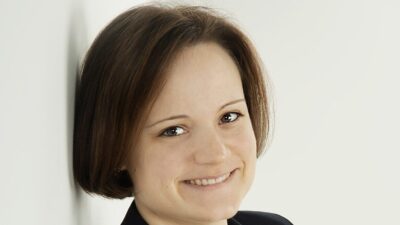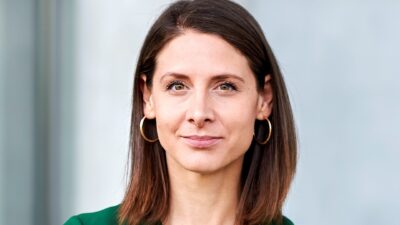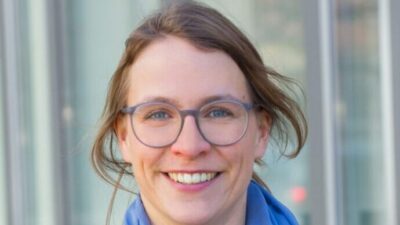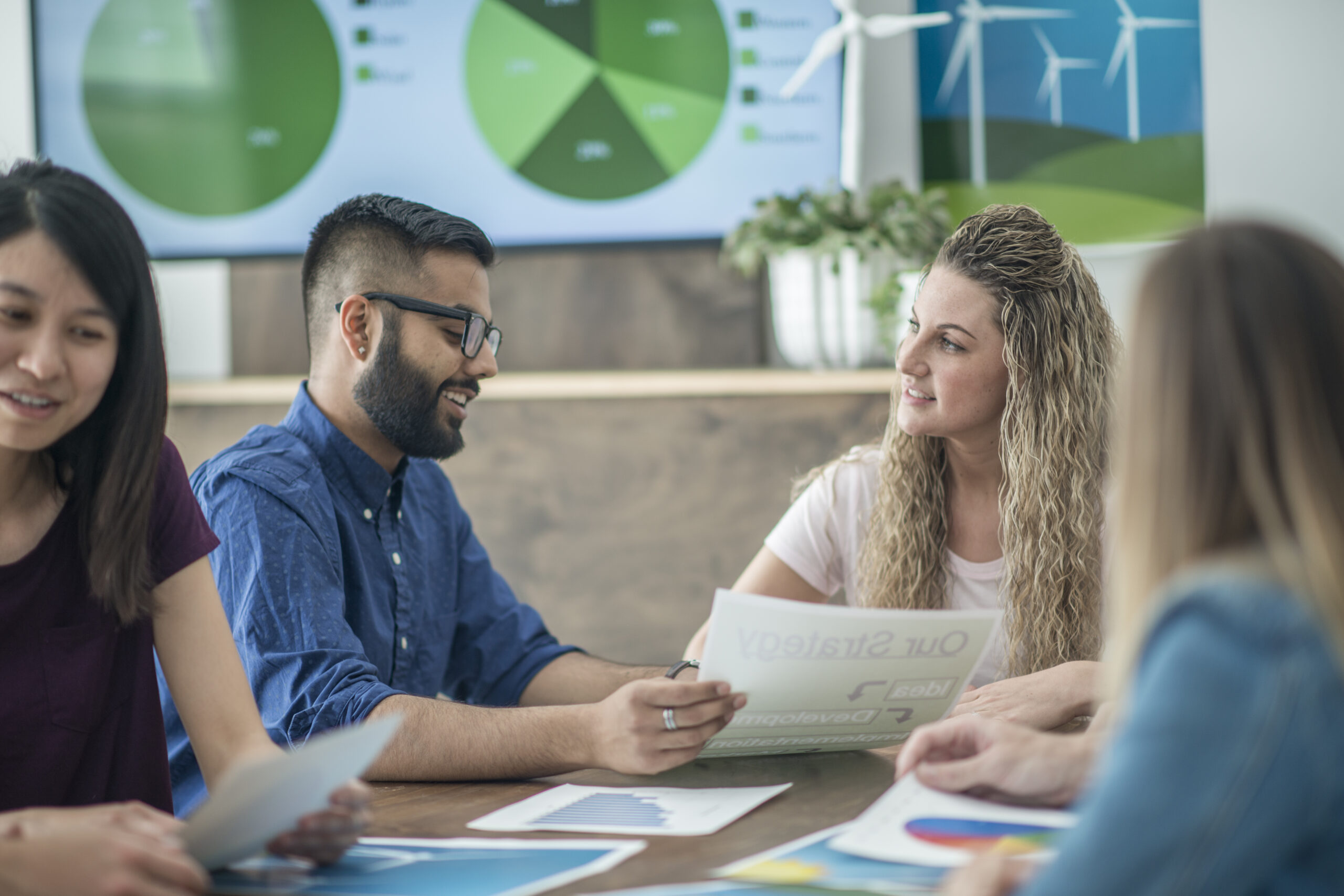
Sustainable Management & Technology
| Language: | Englisch |
| Location: | Straubing, Remote |
| Duration: | 8 days in 11 Wochen |
| Start: | Springtime 2024 |
| Cost: | 3.590 € |
Which trends and technologies in the field of sustainability have the potential to establish themselves on the market in the future? Our certificate program brings you up to date and combines sustainable management with biotechnologies. You can expect various attendance blocks in Straubing and several digital inspirational lectures.
Learn how you can actively support your organization in its transformation towards greater sustainability – economically, socially and ecologically. The program provides you with important methodological knowledge, e.g. in life cycle assessment, circular economy, bioeconomy and the design of sustainable supply chains. You will also learn how to identify new business areas and technologies in the context of sustainability. Together with coaches, you can work on solutions for cases from your individual professional environment.
This program grew out of the SustainabilityDialogue@TUM. Society’s interest in sustainability-oriented business is greater than ever. Changing consumer behavior, employee expectations and also political regulations mean that companies must rethink sustainability.
With this certificate program you can earn 5 ECTS that are applicable to the Executive MBA programs at the Technical University of Munich.
Quick Info
Benefits
Enhance your understanding of sustainability management and sustainable technologies.
-
Understand Technology Trends
Our certificate program enables you to support your organizations in their transformation towards more sustainability and to identify and actively shape new, innovative technology trends.
-
Sustainability Basics
Our program refreshes your fundamentals in sustainability management. The individual modules offer scope to deepen your knowledge – from circular economy to electromobility.
-
Research & Practice
Gain inspiring insights into first-class research at the TUM campus in Straubing. The TUM Campus in Straubing specializes in biotechnology and sustainability.
Program Overview
You can find all the important information about the certificate program here. Below you can find out the objectives of the program, the exact details of the process, what you will learn and which lecturers will teach you the content.
Aims of the certificate course
Reconciling ecological, social and economic sustainability in management and technology development is one of the major challenges of our time. The certificate programme enables participants to support their organizations in the transformation towards greater sustainability and to identify and actively shape new, innovative technology trends at an early stage.
Details
| Program: | Sustainable Management & Technology |
| Graduation: | After successful completion of the final exam, you will receive a certificate from the Technical University of Munich. The certificate program is creditable for all Executive MBA programs at TUM. |
| Academic responsibility: | Prof. Dr. Alexander Hübner, Chair for Supply and Value Chain Management, TUM Campus Straubing |
| Target audience: | For all those who want to initiate change in their working environment, this program is designed to provide a holistic perspective on environmental, economic and social sustainability and technologies. Professionals from all industries and backgrounds are welcome. The program gives a broad overview about technological trends and methods for the management of sustainability but also introduces basics. |
| Participation fee: | 3,590 €* |
| Language: | English |
| Discounts: | We offer one scholarship for employees of companies in Straubing (50% of the program fee). Application deadline until March 15, 2023. 10% discount for TUM Alumni |
| Dates: | Presence block 1: April 10 – 12, 2024, on-site Presence block 2: May, 2 – 3, 2024, on-site Final presentations: July 5, 2024, online on Zoom |
| Study location: | Straubing |
| Format & Timing: | 8 days in 11 weeks, Blended learning |
| Admission requirements: | Participants should have several years of professional experience (leadership experience desired), an interest in sustainability and building a network, and the courage to drive change. |
* Based on our experience, the German tax benefits help many of our participants to self-finance their education as these can be worth of up to 50% of tuition fees and program related travel costs. Please, consult your personal tax advisor for more details. For participants of our programs residing outside Germany this might be applicable, please check the situation with the local tax authorities in your country of residence.
Lecturers
| Prof. Dr. Alexander Hübner, Chair for Supply and Value Chain Management, TUM | Prof. Dr. Anja Faße, Head of Professorship for Environmental and Development Economics, TUM |
| Prof. Dr. Cordt Zollfrank, Professorship Biogenic Polymers, TUM | Prof. Dr. Volker Sieber, Professorship for Chemistry of Biogenic Resources, TUM |
| Prof. Dr. Hubert Röder, Head of Professorship for Sustainable Business Economics, TUM | Prof. Dr. Josef Kainz, Head of the Professorship of Energy Technology, TUM |
| Prof. Dr. Magnus Fröhling, Head of Professorship for Circular Economy, TUM | Prof. Dr. Sebastian Goerg, Professorship for Economics, TUM |
Structure
Module 1: Circular Economy (Prof. Dr. Fröhling)
- Motivation and aim
- Circular Economy – an introduction to the concept
- Action fields for a Circular Economy
- Challenges
- Solution approaches
Module 2: Sustainable behavior change – what can we learn from behavioral economics? (Prof. Dr. Goerg)
- Nudging (Defaults, Social comparisons and norms, Goals, Criticism)
- Incentives
- Design of behavioral interventions
- Behavioral Change: Conscious and Strategic Behavior
Module 3: Defossilization and Wood based resources (Prof. Dr. Röder)
- Global Overview land use and forests
- Wood assortments (and lignocellulose)
- Forest biomass supply and demand
- Plantations
- Saw milling industry
- Pulp and paper industry
- Wood based panels
- Pellets
Module 4: Sustainable Supply Chain Management (Prof. Dr. Hübner)
- Fundamentals in SCM
- Relevance of Sustainability in SCs
- Concepts of Sustainable SCM
- Applications of Sustainable SCM
Module 5: Political governance of bioeconomy and sustainability (Prof. Dr. Faße)
Environmental Sustainability:
- CO2 pricing / taxes
- Carbon Border Adjustment avoiding Carbon Leakage
- Carbon Neutrality
- Environmental Evaluation
Social Sustainability:
- Supply Chain Due Diligence Act
- Modern Slavery
- Food Security / Poverty
Governance / Institutional Sustainability:
- Corruption, property rights
Module 6: Renewable raw materials – when is it worthwhile to use them as materials? (Prof. Dr. Sieber)
- Explanation of terminology
- Raw material potential and reason for use
- Drop in vs. New to the market
- Composition of renewable resources
- Concrete examples:
- Ethylene and propylene
- Alternatives to polyacrylates
- PEF vs. PET
- Laurinlactam
- Caranlactam
- CO2 and electricity as renewables
Module 7: (Bio-)gas and electromobility: How does the climate benefit? (Prof. Dr. Kainz)
- Introduction: Legislation
- Introduction: Fleet limits
- Assessment limits
Testimonials
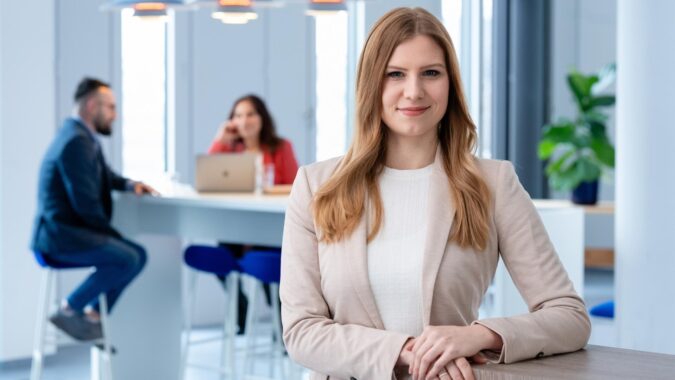
Your contact
Franziska Sennebogen
Program Manager
Phone: +49 89 289 26761
E-Mail: transformation.sustainability@lll.tum.de
